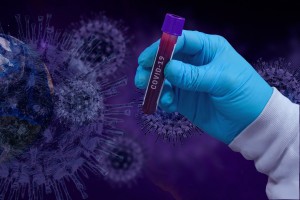
Geneva: The World Health Organisation is looking forward to Serum Institute of India submitting full data sets for rapid assessment so that the WHO can determine whether it can recommend their AstraZeneca vaccine for international use.
“WHO continues to ask vaccine manufacturers from around the world to move swiftly to provide the necessary data that will allow us to consider them for emergency use listings,” the WHO Director-General Dr. Tedros Adhanom Ghebreyesus, told media persons here last night (IST).
He informed that a WHO team in China too was currently working with producers of the Sinovac and Sinopharm vaccines to assess compliance with international quality manufacturing practices ahead of potential emergency use listing by WHO.
“To clarify this is separate from the WHO origins mission,” he said, and added that saving lives, livelihoods and economies depended on a global agreement to avoid vaccine nationalism.
After much delay, China apparently cleared the visit by WHO’s team of international scientists, who are distinguished experts from ten institutions and countries, to visit the country to engage in and review scientific research with their Chinese counterparts on the origins of the virus.
“Just as we look forward on research and rolling out vaccines, we continue work on the origins,” Dr. Ghebreyesus said and informed that scientific evidence will drive hypotheses, which will then be the basis for further, longer-term studies. “This is important not just for COVID-19 but for the future of global health security and to manage emerging disease threats with pandemic potential,” he said. It may be mentioned the WHO’s Global Outbreak Alert and Response Network (GOARN) partners and countries including Australia, Denmark, Germany, Kenya, Japan, Netherlands, Qatar, Russia, Sudan, the United Kingdom, the United States of America and Vietnam, and China, are supporting this project.
Dr. Ghebreyesus said studies will begin in Wuhan to identify the potential source of infection of the early cases. “We will share more news as we have it but let’s give this team of scientists the space to work with their Chinese counterparts effectively and let’s wish them all well,” he said.
Meanwhile, WHO blamed significant increase in the number of contacts that individuals had and their families had over the Christmas and New Year holiday, for the exponential growth in COVID-19 cases in many countries. While she said some of the exponential growth was not even at a slant but almost vertical, Dr Maria Van Kerkhove, COVID-19 Technical lead, WHO Health Emergencies Programme, though assured, “that doesn’t mean we’ve lost the battle”.
Dr. Maria claimed Coronavirus was controllable. “Even these variants that we are seeing, having variants become identified because we have good sequencing that’s happening globally and that’s increasing globally.” She however said that virus variants we being identified that increased transmissibility in some situations was not good. “It doesn’t help the situation. It makes it that much harder,” she said but added: “…we still have control over this virus”. According to her, there were increases in transmission and a number of countries before these variants were identified before these variants were circulating and that was due to increased mixing of people. “There’s no way around that,” she asserted.
The World Health Organisation was notified by Japan about a new variant of the virus over the weekend. “The more the virus spreads the higher the chance of new changes to the virus,” the WHO Director-General Dr. Tedros Adhanom Ghebreyesus, told media persons here last night. While he noted that transmissibility of some variants of the virus appeared to be increasing, which could drive a surge of cases and hospitalisations, “which is highly problematic for health workers and hospitals already close to breaking point”, he expressed hope that with new treatments coming down the pipeline, more lives of those with serious cases of COVID-19 could be saved.
“What’s most critical is that we sequence the virus effectively so we know how it’s changing and how to respond. For example, while diagnostics and vaccines still seem to be effective against the current virus, we may need to tweak them in the future,” he said.
Last week, WHO had released a comprehensive implementation guide and risk-monitoring framework to help countries set up high-impact sequencing programmes. The WHO called on all countries to increase the sequencing of the virus to supplement ongoing surveillance, monitoring and testing efforts, and to share that data internationally which would help better understanding when variants of concern are identified.
“We are aware that sequencing requires specialised equipment, a trained workforce and close collaboration between experts. Building upon our existing lab networks, WHO is working with countries to enhance sequencing capacity and we extend our support to all countries who need it. We achieve much of this through our international network of labs for SARS-CoV-2 and influenza flu lab network, both of which have been a beacon of science, solutions and solidarity in the last year,” Dr. Ghebreyesus said. He informed that today WHO’s Research and Development Blueprint group was convening scientists from around the world to set global research priorities for the year ahead, including on virus variants and sequencing.
Next week the WHO Executive Board too would be meeting where all countries would be encouraged to fulfil their pledges to COVAX. “I call for a collective commitment so that within the next 100 days, vaccination for health workers and those at high-risk in all countries are underway. Governments, manufacturers, civil society, religious and community leaders must come together to create the greatest mass mobilisation in history for equitable vaccination,” the WHO D-G said.
The WHO stressed the need to follow the public health basics now more than ever. “Keep as much physical distance as you can from other people. Keep rooms well-ventilated. Wear a mask. Keep your hands clean. And cough away from others into your elbow. You might get fed up of hearing it but the virus is not fed up with us,” Dr. Ghebreyesus said. He reiterated that limiting transmission limits the chance of dangerous new variants from developing.
– global bihari bureau





